Jodey Whiting: Family lose appeal for new inquest over benefits death
- Published
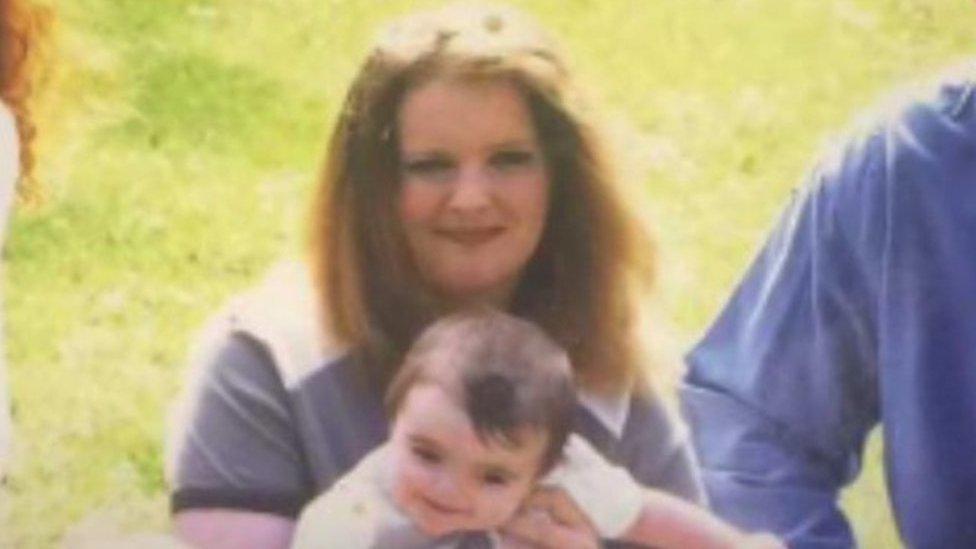
Jodey Whiting had multiple physical and mental health problems
A family have lost their appeal for a new inquest to consider the impact of a benefits suspension on a disabled woman's death.
Jodey Whiting, 42, from Stockton-on-Tees, took her own life in 2017 days after payments were halted because she missed a work capability assessment.
Her mother, Joy Dove, had wanted a coroner to examine the role of the Department for Work and Pensions (DWP).
High Court judges said the original inquest was sufficient.
Mrs Justice Farbey, who considered the appeal alongside Lord Justice Warby and Judge Thomas Teague QC, the chief coroner for England and Wales, said it would not be in the interests of justice for a new inquest.
She added: "It is likely to remain a matter of speculation as to whether or not the department's decision caused Ms Whiting's suicide.
"In my judgment, it would be extremely difficult for a new inquest to conclude that the department caused Ms Whiting's death."
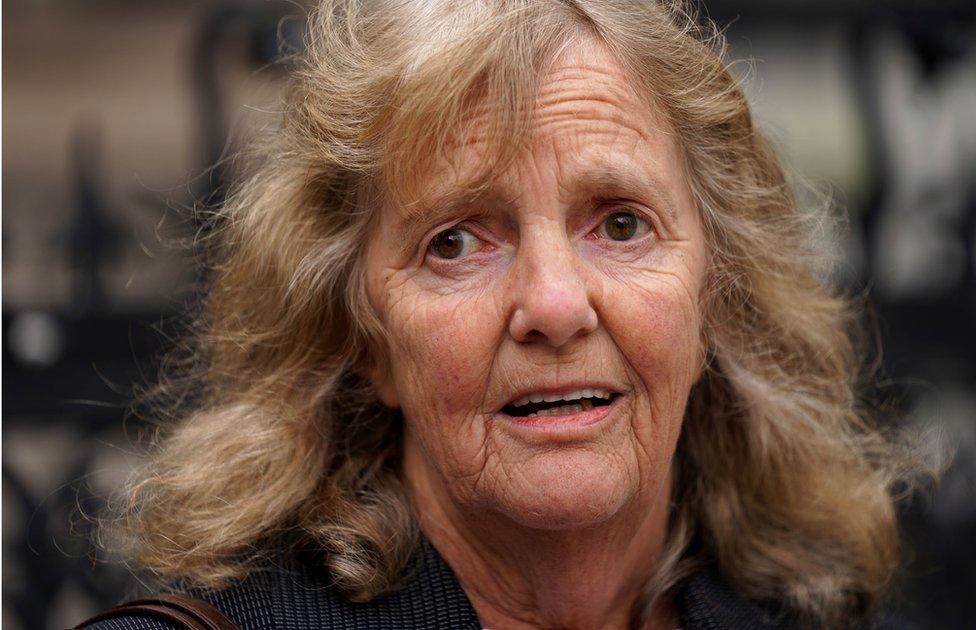
Joy Dove said the impact of the DWP's actions had not been considered at her daughter's inquest
Ms Dove said she was "bitterly disappointed" by the High Court ruling, adding: "More than four years on from losing Jodey the DWP has still not had to answer for the role that I believe they played in her death.
"Despite dismissing my application the judgment makes it clear that the behaviour of the DWP has been shocking and I welcome the High Court ruling that Jodey's [benefits] should never been withdrawn.
"This is not the end. I am not giving up and I will continue to fight for justice for Jodey."
Ms Whiting's original inquest lasted just 37 minutes and concluded she had taken her own life.
Ms Dove's lawyers argued there had been "multiple, significant failings" by the DWP that were not considered by Teesside and Hartlepool's Coroner.
The High Court had heard Ms Whiting had received disability benefits for more than 10 years due to serious, long-term physical and mental health issues including severe pain and a history of self-harm.
After she missed an assessment meeting, employment and support allowance was ended on 6 February 2017 which led to her housing benefit and council tax benefit also being terminated.
'Unable to cope'
Ms Whiting had told the DWP she was in hospital and had not received a letter about the assessment, and Ms Dove later found the unopened letter at her daughter's home.
Ms Whiting "felt unable to cope and she killed herself, and the DWP had been told, by her, about that risk", Ms Dove's lawyer barrister Jesse Nicholls told the court at an earlier hearing.
The DWP's decision to terminate Ms Whiting's benefits was overturned five weeks after her death and an inquiry found there were significant errors by staff for which the department had to apologise and pay £10,000 in compensation.
Mr Nicholls said the coroner had not seen the inquiry report and it was possible a different conclusion could be reached at a fresh inquest.
Jonathan Hough QC, for the coroner's service, had said sufficient evidence had been called to address how Ms Whiting died.
He said the coroner accepted the government's decision to withdraw benefits contributed to Ms Whiting's low mood but it was "a matter of speculation" whether it caused her to take her own life.

Follow BBC North East & Cumbria on Twitter, external, Facebook, external and Instagram, external. Send your story ideas to northeastandcumbria@bbc.co.uk, external.
Related topics
- Published22 June 2021
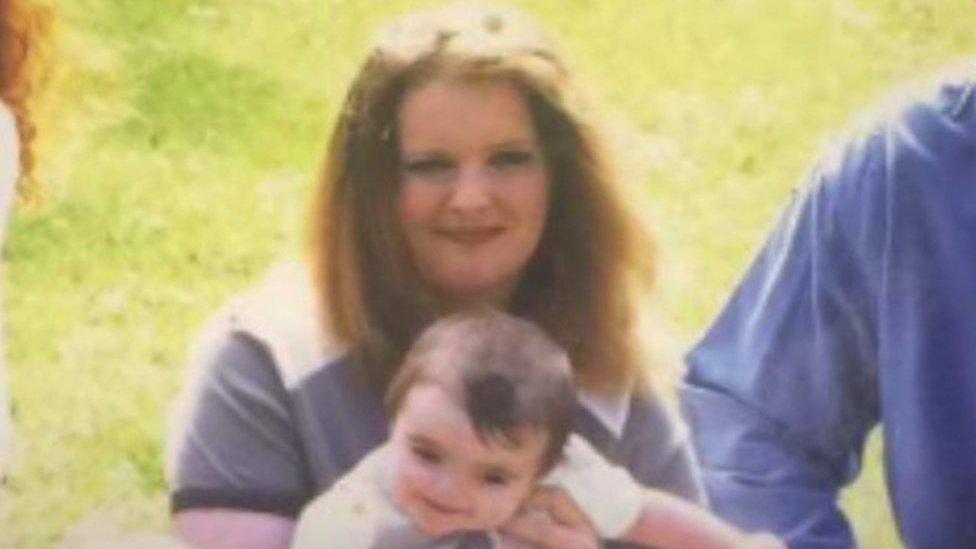
- Published12 June 2021

- Published10 May 2021
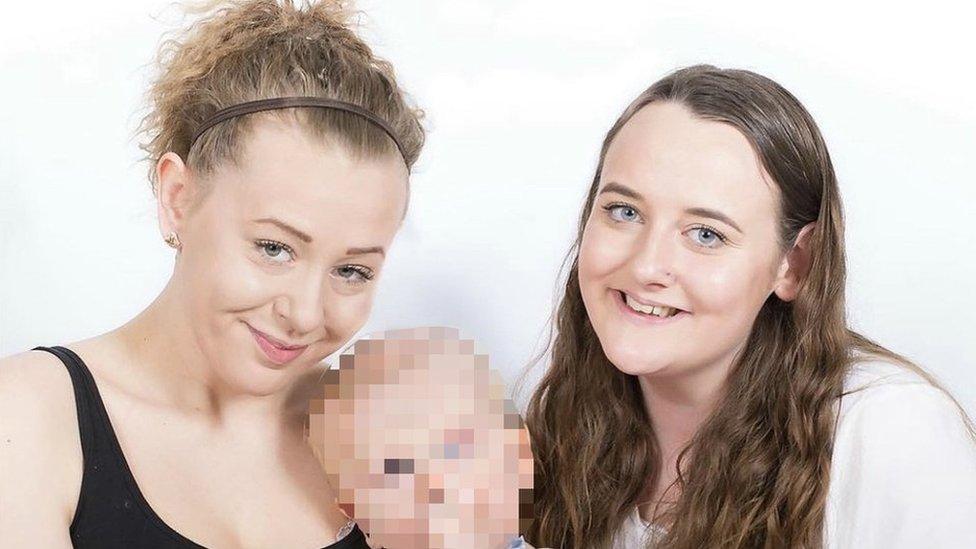
- Published11 November 2020
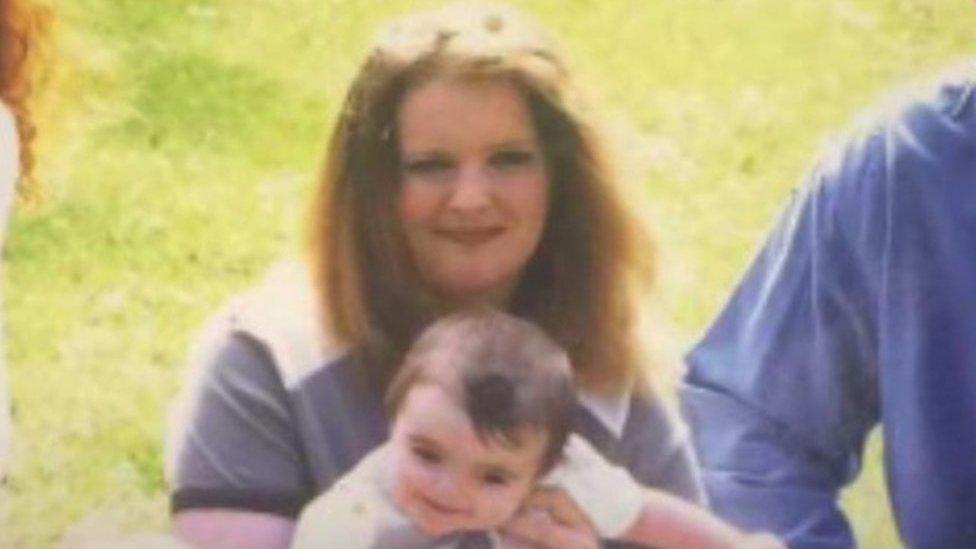
- Published10 June 2019

- Published11 April 2019

- Published23 February 2019
